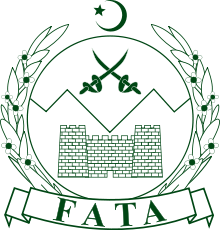Syeda Mazhar
In the petition for reprieve, generally submitted as the mercy petition before the President, the prime Parliament of India has been accused of wrongly associating the Kashmiri Youth Afzal Guru with the Parliament attack. India by hanging him sent a message to the Kashmiri youth how the world’s so-called (and self-proclaimed) largest democracy doesn’t hesitate to commit grave human rights violations and implicate Kashmiris in false cases if they show slightest of pro-Pakistan sentiments.
The Pakistanis have, however, showed utmost solidarity with the Kashmiris since the start. We have been fighting for the freedom of Kashmir for over six decades and in process have sacrificed precious lives and resources for our brothers. The Pakistani foreign ministry said: “We reaffirm our solidarity with the People of Jammu and Kashmir and express our serious concern on the high-handed measures taken by India in the wake of Afzal Guru’s execution to suppress the aspirations of Kashmiris by arrests and detention of Kashmiri leaders, curfew, news blackout and other coercive means.”
Afzal Guru blamed for the facilitation of the attack on the Indian Parliament on the 13th of December, 2001. This attack had five armed men who drove through the gates of the Indian Parliament in a bomb fitted car. The attackers jumped out of the car and also open fired, killing eight security personnel and a gardener. All attackers were killed in the firefight that followed and apart from the names, which are more than likely to be force fed into a confession made by Afzal Guru by the Indian Police; we know nothing about these infamous five men. LK Advani, the then home miniter in the BJP government, said they “looked like Pakistanis”.
The consequences of the attack were mostly based only on Afzal Guru’s custodial confession which was later discarded by the Supreme Court. The Indian government called its ambassador from Pakistan and mobilized half a million soldiers on the Pakistan border. Talk of the nuclear war hit the headlines and the foreign embassies issued travel advisories and evacuated their staff from Delhi. The standoff lasted months and cost India millions of pounds.
The Delhi Police Special Cell which again is notorious for its fake encounter killings where suspected terrorists are targeted, claimed it had found the mastermind of the attack and on 15th of December, Professor SAR Geelani and Showkat Guru along with Afzal Guru were arrested in Kashmir. The then Prime Minister, Atal Bihari Vajpayee, and Advani publicly supported the Indian Media propaganda along with the support of the Supreme Court.
The BJP called for an immediate execution. One of its election slogans was “Desh abhi sharminda hai, Afzal abhibhi zinda hai”, meaning, “Our nation is ashamed because Afzal is still alive”. In order to blunt the murmurs that had begun to surface, a fresh media campaign propaganda began. Chandan Mitra, now a BJP MP, then editor of the Pioneer newspaper, wrote: “Afzal Guru was one of the terrorists who stormed parliament house on 13 December 2001. He was the first to open fire on security personnel, apparently killing three of the six who died.” Even the police charge sheet had no evidence of the above said claim. The series of blame and stories increased two folds and three as time passed but Afzal Guru Case wasn’t given a properly channeled investigation. Anyone who was really interested in solving the mystery of the parliament attack would have followed the dense trail of evidence on offer. No one did, thereby ensuring the real authors of the conspiracy will remain unidentified and uninvestigated.
The real story and tragedy of Afzal Guru is a typical story of the people of Kashmir Valley which the Indian government have turned into a potential nuclear flashpoint, and a most densely militarised zone in the world, where half a million Indian soldiers (one to every four civilians) and a maze of army camps and torture chambers that would put Abu Ghraib in the shade are bringing secularism and democracy to the Kashmiri people. Since 1990, when the struggle for self-determination became militant, 68,000 people have died, 10,000 have disappeared, and at least 100,000 have been tortured. What sets Afzals killing apart is the involvement of the constitutional and law imposing units of a democracy.
Now that Afzal Guru has been hanged in a moment of rare unity the Indian nation, or at least its major political parties; Congress, the BJP and the Communist Party of India came together as one to celebrate the triumph of the rule of law. The Indian media also embellished the “victory of democracy” or rather the utter disrespect of the minorities in India forewarning the future of Kashmiris under the Hindu extremist parties. Rightwing Hindu nationalists distributed sweets to celebrate the hanging, and beat up Kashmiris (paying special attention to the girls) who had gathered in Delhi to protest. Even though Guru was dead and gone, the commentators in the studios and the thugs on the streets seemed, like cowards who hunt in packs, to need each other to keep their courage up. Perhaps because, deep inside, themselves they knew they had colluded in doing something terribly wrong.



